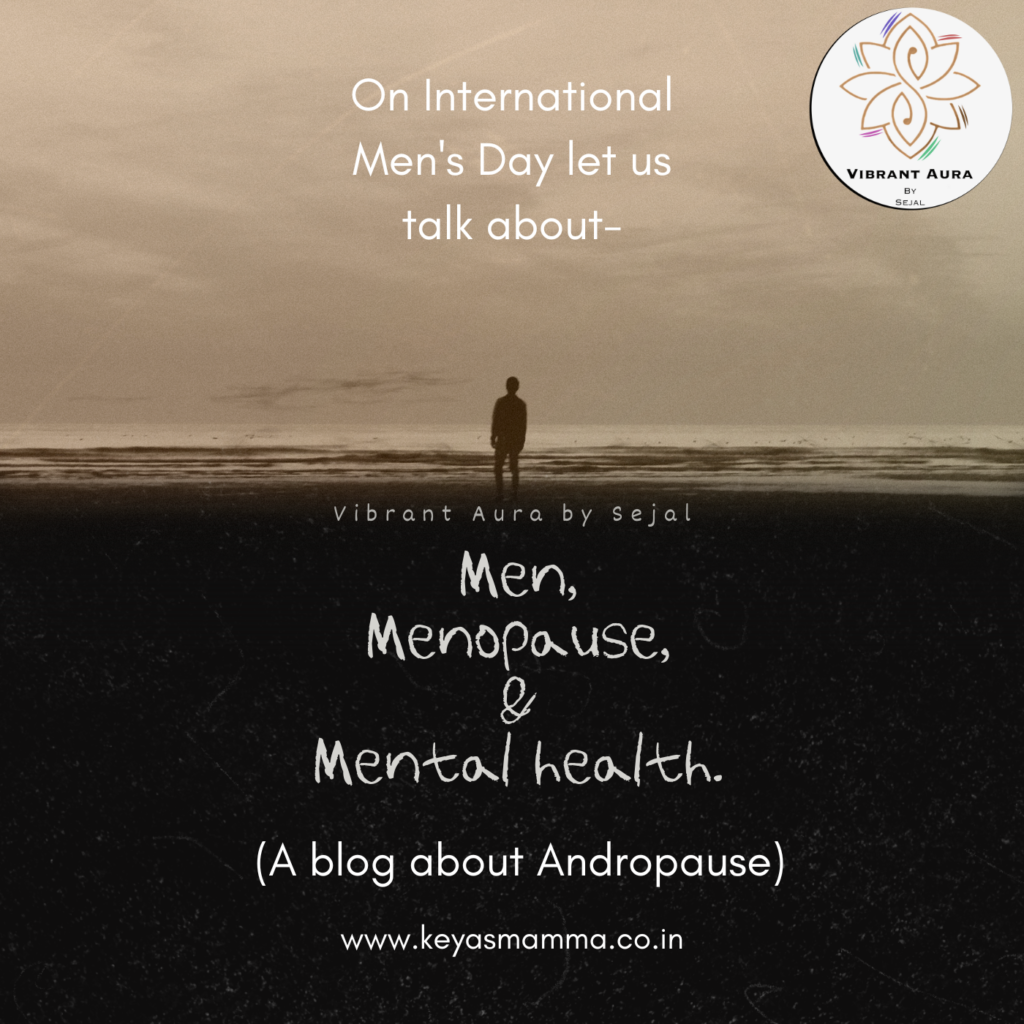
Men, Menopause & Mental health
Let’s talk about Men’s mental health and the hormonal changes they go through on this International Men’s Day.
Menopause is typically associated with women and refers to the natural biological process that marks the end of a woman’s reproductive years. However, men do not go through menopause in the same way women do. While men do experience hormonal changes as they age, it’s not as abrupt or well-defined as menopause.
In men, the age-related hormonal changes are often referred to as “Andropause” or “late-onset hypogonadism.” Testosterone levels gradually decline with age, and this can lead to various symptoms such as reduced energy, muscle mass, and sexual desire. These changes are generally more subtle and gradual compared to the dramatic hormonal shifts seen in menopause.
If you’re a man and you’re experiencing symptoms related to hormonal changes as you age, it’s a good idea to consult with a healthcare provider to discuss possible treatments or lifestyle changes that can help address your specific concerns.
Age-related hormonal changes, sometimes informally referred to as “andropause” in men, can have various effects on mental health. These changes are primarily associated with a gradual decline in testosterone levels as men age. Here’s how it can impact mental health:
1. Mood Changes: Some men may experience mood swings, irritability, or feelings of sadness or depression as testosterone levels decline. Low testosterone can be a contributing factor to these mood changes.
2. Fatigue and Energy: Decreased energy levels and increased fatigue can be common symptoms associated with declining testosterone, which may affect a man’s motivation and overall well-being.
3. Cognitive Function: Some research suggests that low testosterone levels might be associated with cognitive decline, although the evidence is not entirely conclusive. Cognitive functions like memory and attention could be affected in some individuals.
4. Sleep Disturbances: Hormonal changes can disrupt sleep patterns, leading to insomnia or poor sleep quality. Sleep plays a crucial role in mental health, so disturbances can have a negative impact.
5. Reduced Libido: A decline in sexual desire and performance can lead to stress and anxiety, which can, in turn, affect a man’s mental well-being.
It’s important to note that not all men will experience these symptoms, and their severity can vary. If you or someone you know is struggling with mental health issues related to age-related hormonal changes, it’s advisable to seek help from a healthcare provider. They can conduct assessments, provide appropriate treatments or interventions, and offer guidance on lifestyle changes to improve mental health.
Also read about, ‘Mental Health of Newborns Father’-